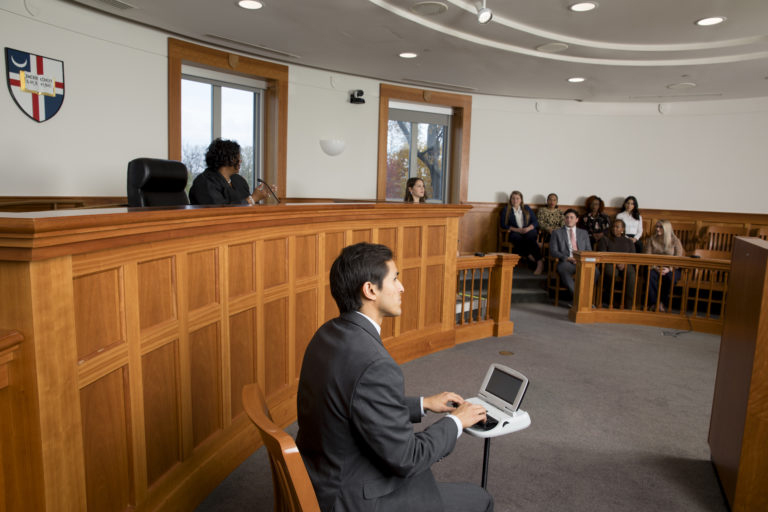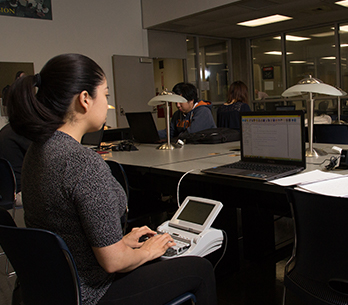How court reporting Has Modernized With New-Age Stenography Machines
How court reporting Has Modernized With New-Age Stenography Machines
Blog Article
Understanding the Essential Role of Court Reporting in Legal Proceedings
Court reporting is typically forgotten, yet it's essential in lawful procedures. Let's explore the essential functions of court reporting and its relevance in the lawful landscape.
The History of Court Coverage
Court coverage has a rich background that dates back to ancient civilizations, where scribes used different approaches to catch talked words. The earliest types of shorthand arised in Greece around 400 BC, allowing thinkers and politicians to videotape speeches rapidly. As you move with history, you'll discover that the Romans embraced similar methods, fine-tuning them to record lawful proceedings. By the 16th century, modern shorthand systems began to take shape, allowing stenotype reporter to produce accurate transcripts efficiently.
In the 19th century, the innovation of the typewriter transformed the profession, making it simpler to create legible records. The intro of steno equipments in the 20th century further advanced court reporting, allowing real-time transcription throughout tests. Today, stenotype reporter play a significant duty in lawful procedures, guaranteeing that every word talked in the courtroom is precisely documented. Comprehending this background highlights the importance of court coverage in keeping a fair lawful system.
The Abilities Required for Court Reporters
As a court reporter, you need strong keying skills to stay on par with the fast-paced discussion of legal procedures. Your ability to pay attention diligently is equally as crucial, making sure every word is captured properly. Grasping these abilities is vital to supplying precise and trustworthy transcripts.
Efficient Typing Capacities

Strong Paying Attention Abilities
Solid listening abilities are crucial for court press reporters, as they must accurately record talked words in real time. This ability aids you distinguish in between speakers, understand legal jargon, and comply with intricate discussions. Eventually, strong listening skills make you a vital asset in lawful proceedings, guaranteeing quality and accuracy in the court record.
The Innovation Behind Court Reporting
In the domain name of legal proceedings, innovation plays an important function in boosting the accuracy and performance of court coverage. You're most likely acquainted with the typical stenotype machine, but modern court press reporters currently make use of advanced software program that incorporates with these devices, allowing real-time transcription. This indicates you can have instant accessibility to the transcript as the proceedings unfold.
Digital audio recording is another technical development that's obtaining traction. It records every spoken word, assuring nothing is missed out on. Some reporters make use of voice acknowledgment software, which can assist simplify the transcription process, though it still needs human oversight for precision.
Additionally, cloud-based storage permits simple accessibility and sharing of records, boosting collaboration among legal teams. By leveraging these modern technologies, court press reporters can provide high-grade, timely documents that are crucial for the lawful process. Accepting this technology not just enhances your understanding but additionally guarantees reliability in legal documents.
The Court Reporting Process

As lawful process unravel, the court reporting procedure becomes important in recording every detail precisely. You'll find that a court reporter plays a vital function by recording talked words right into created message in real-time. When you tip right into the courtroom, the press reporter is currently prepared, outfitted with specialized devices like stenographic devices and audio recording tools.
Throughout the process, the press reporter listens attentively, inputting out whatever stated, from witness testaments to attorneys' arguments. You may observe them pausing occasionally to ensure quality or to ask for a repeat if something had not been clear. After the session, the reporter reviews the records, making necessary edits for readability.
This whole procedure not only assures a complete record yet also prepares you for future recommendation during appeals or instance evaluations. In the busy environment of a court room, the court reporting procedure is important for maintaining an exact account of events.
The Significance of Accuracy in Records
While a court reporter's primary duty is to record talked here words, the accuracy of these records is vital for the stability of legal process. When you're associated with an instance, you rely upon specific documentation to recognize the occasions and disagreements presented. Any type of mistakes in transcription can cause misunderstandings, misinterpretations, and even wrongful judgments.
Exact records ensure that every information is captured, supplying a reliable document for judges, attorneys, and courts. This degree of detail is vital throughout charms or when referencing previous testimonies. If a transcript has mistakes, it can weaken the entire lawful process, potentially affecting results.
Additionally, exact transcripts maintain the legal rights of all events entailed, promoting fairness and transparency. Whether you're an attorney preparing for test or a witness mirroring on your testimony, you can rely on that the court reporter's ability in accuracy plays a significant duty in your case's success.
The Role of Court Reporters in Various Legal Settings
Court press reporters play an essential duty in numerous legal setups, from trials to depositions and legal hearings. You'll locate that their work assurances every talked word is precisely caught, which is vital for the legal procedure. Comprehending how their duties differ across these atmospheres can highlight their influence on the justice system.
Court Reporters in Trials
In any lawful test, you'll discover that court press reporters play a vital duty in catching the proceedings with accuracy and accuracy. Court reporters need to maintain focus and rate, frequently using customized tools to maintain up with busy discussion. Inevitably, court press reporters assist support the justice system, guaranteeing transparency and liability throughout trials.
Depositions and Lawful Hearings
Beyond trials, court reporters also play a crucial duty in depositions and legal hearings. During these proceedings, they record every talked word, making sure an exact record of testimonies and conversations. You'll locate that this precision is crucial, as depositions typically act as a foundation for later disagreements in court. Court reporters supply real-time transcription solutions, enabling lawyers to follow along and deal with any type of issues instantly. Their work enhances the effectiveness of lawful hearings, making it much easier for all parties to refer back to the official document. Furthermore, the transcripts they produce can be significant for allures and various other legal processes - court reporting. Basically, court reporters are indispensable in keeping the honesty and quality of the legal document in depositions and hearings.
Future Fads in Court Coverage
As innovation remains to progress, the future of court coverage guarantees to be shaped by innovative devices and practices that boost accuracy and efficiency. You'll likely see enhanced use of expert system and real-time transcription solutions, enhancing the reporting process. These advancements can aid see this page you access records quicker, which can be essential for your legal techniques.
Additionally, integrating video conferencing and remote coverage will certainly become a lot more usual, enabling you to get in touch with court press reporters from anywhere (court reporting). This flexibility can make depositions and hearings more obtainable, saving both time and resources
You'll also discover an emphasis on electronic recordkeeping, which streamlines the storage and retrieval of records. With cloud-based remedies, you'll have the ability to share files firmly and collaborate with your lawful team in real-time.
Often Asked Inquiries
What Is the Ordinary Income of a Stenotype Reporter?
The typical income of a stenotype reporter differs by location and experience, but you can expect it to range from around $50,000 to $80,000 every year. Lots of factors influence this earnings, consisting of specialization and demand.
Just how Do I End Up Being a Licensed Court Reporter?
To end up being a qualified stenotype reporter, you'll need to finish a court reporting program, pass an accreditation examination, and gain useful experience. It's important to stay check out this site updated on sector standards and continuing education demands.
What Sorts of Cases Do Court Reporters Cover?
Court reporters cover numerous cases, including criminal trials, civil claims, depositions, and settlement hearings. You'll discover them recording whatever, making certain exact documents for courts, lawyers, and celebrations involved, capturing every word spoken in lawful settings.
Are Court Reporters Required to Have a Degree?
Yes, court reporters usually require a level or certification in court coverage. Numerous programs use specialized training, ensuring you get the skills needed for accurate transcription and legal paperwork in various setups.
Can Court Reporters Work Remotely?

Report this page